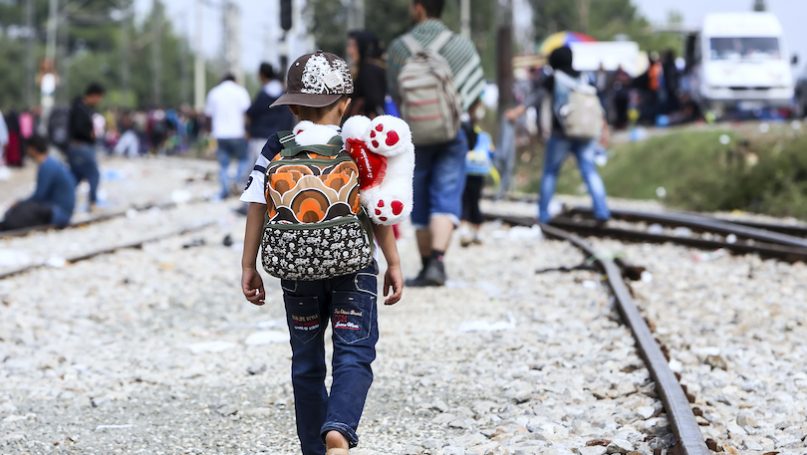
This feature is part of the online resources to accompany the textbook Foundations of International Relations.
Migration is a part of everyday life. People move for a wide range of reasons: to look for new opportunities, earn better salaries, reunite with loved ones, escape from social or political difficulties, or to study – amongst others. Indeed, several states, such as the United States and Australia, have themselves been built on migration. Others have been impacted by large-scale emigration events in their history (citizens leaving a state) such as Vietnam, Cuba and Ireland. Such events highlight that migration is not always voluntary and can instead be forced. This can even be as a result of mass movements of people as borders are drawn, and redrawn, such as when India and Pakistan split in 1947 along largely religious lines, displacing 14 million people in the process. In 2020 there were 82.4 million forcibly displaced people worldwide (UNHCR 2021) – underlining the extent of this truly global issue. By way of establishing scale, this number is within range of the total death toll of the Second World War. Yet it remains evident that tens of millions of displaced people across the world, often living in dire conditions, have not garnered the sense of international urgency and action that major instances of state-on-state warfare has, for example.
Migration is caused by push factors (issues that would make one want to leave one’s home state, such as hunger or war) and pull factors (elements that would attract one to a foreign state, such as safety or an employment opportunity). When these push–pull factors are weighed up by a particular individual, and occur together with an available opportunity or a means to move, they result in people moving from one state to another. This can be temporary or permanent.
Although a complex phenomenon, migration can be split into two broad categories: voluntary migration and forced migration. Voluntary migration categorises those who could have stayed, albeit sometimes with difficulty, but decided to move abroad. Forced migration is a more contested category as it involves movements of people displaced by war, conflict or oppression – essentially comprising a significant push factor. When this happens in such a way that people are moving from state to state, this is widely recognised with the status of ‘refugee’ and leads to such persons being able to apply for asylum in any foreign state in which they arrive. This category has begun to widen to include people displaced due to climate events and other natural disasters. Yet, there is no clear agreement on what a ‘climate refugee’ is – especially as many of such examples are internally displaced people (forced to move within their own state), which adds more complexity into finding definitions that better match the needs of the global issues of the twenty-first century and can be added to our international legal and normative framework.
Text adapted from Kynsilehto, Anitta. ‘Migration’. In, McGlinchey, Stephen. 2022. Foundations of International Relations. London: Bloomsbury.
Below is a collection of multimedia resources that help unpack, and explain, the importance of migration within International Relations.
General overviews
Case studies
Displaced – Podcast series
Current Refugee Situations – live infographic
The Refugee Project – Website
Critical Perspectives on Migration in the Twenty-First Century – free e-book
Migration and the Ukraine Crisis: A Two-Country Perspective – free e-book
Dignity in Movement: Borders, Bodies and Rights – free e-book